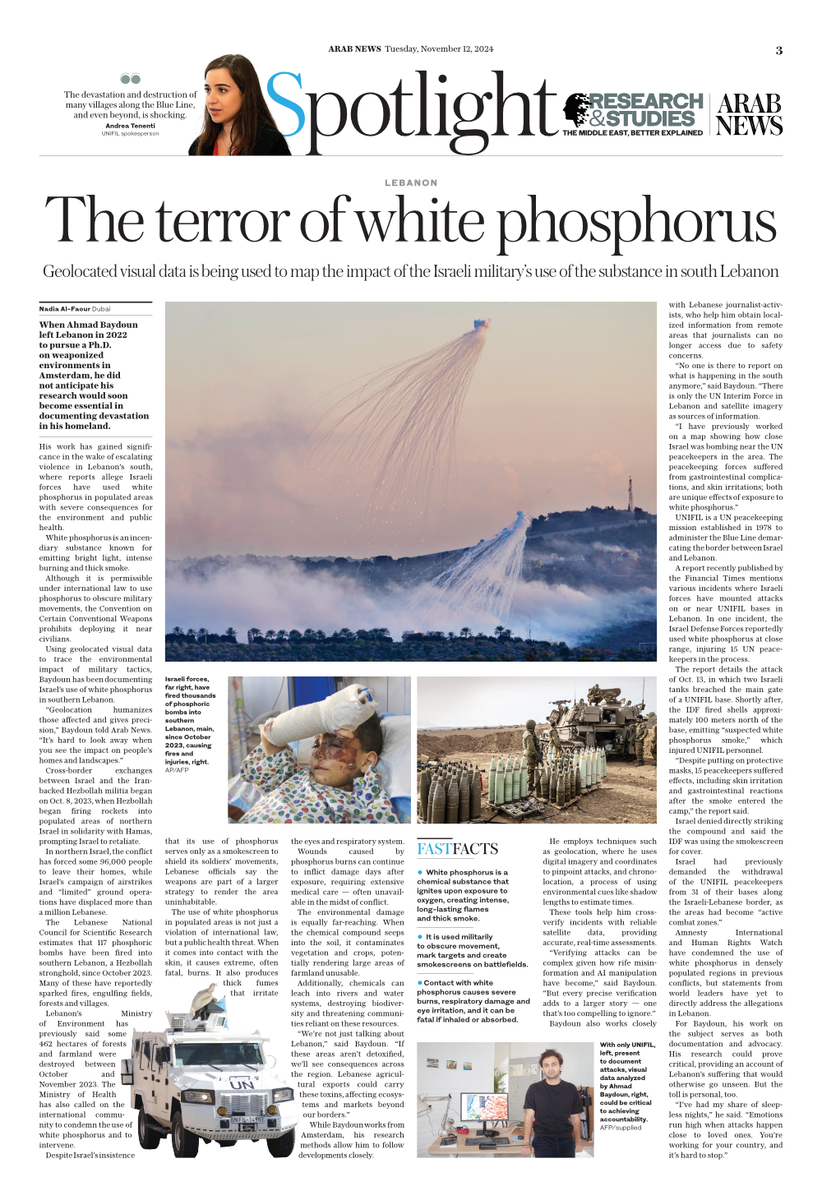DUBAI: When Ahmad Baydoun left Lebanon in 2022 to pursue a PhD on weaponized environments in Amsterdam, he did not anticipate his research would soon become essential in documenting devastation in his homeland.
His work has gained significance in the wake of escalating violence in Lebanon’s south, where reports allege Israeli forces have used white phosphorus in populated areas with severe consequences for the environment and public health.
White phosphorus is an incendiary substance known for emitting bright light, intense burning and thick smoke.
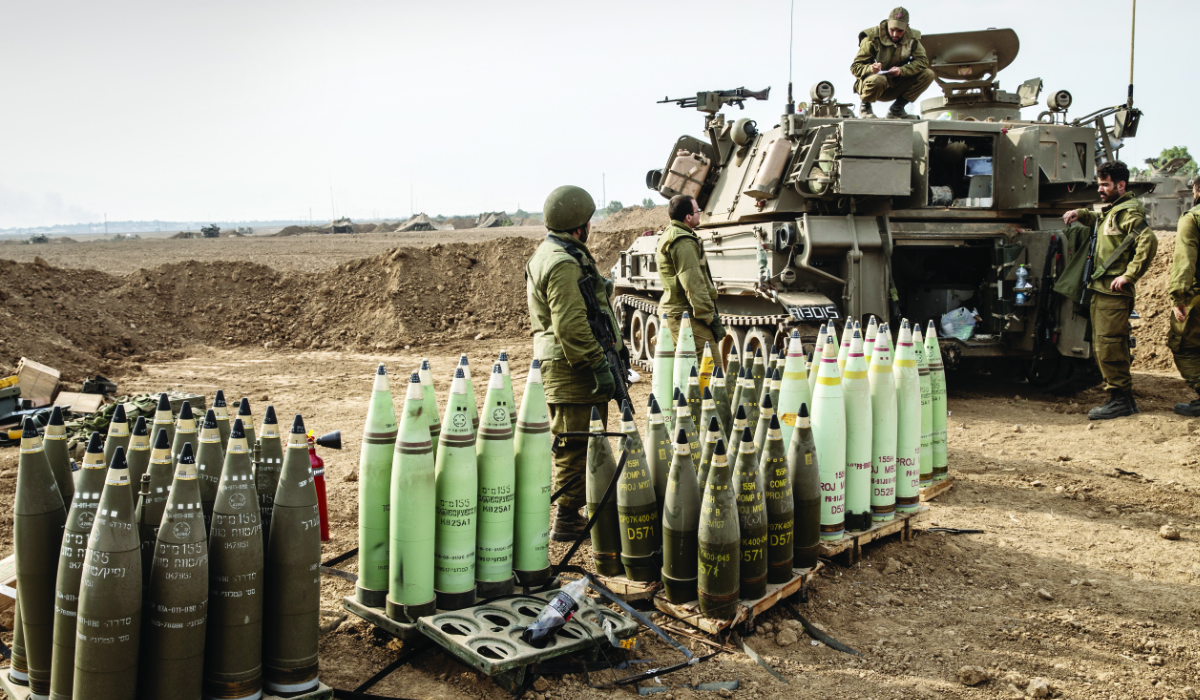
A view of M825 and M825A1 artillery shells labeled D528, the US Department of Defense Identification Code for "white phosphorus-based munitions" in Sderot, Israel on October 09, 2023. (Photo by Mostafa Alkharouf/Anadolu via Getty Images)
Although it is permissible under international law to use phosphorus to obscure military movements, the Convention on Certain Conventional Weapons prohibits deploying it near civilians.
Using geolocated visual data to trace the environmental impact of military tactics, Baydoun has been documenting Israel’s use of white phosphorus in southern Lebanon, both to bear witness and to demand accountability.
“Geolocation humanizes those affected and gives precision,” Baydoun told Arab News. “It’s hard to look away when you see the impact on people’s homes and landscapes.”
FASTFACTS
• White phosphorus is a chemical substance that ignites upon exposure to oxygen, creating intense, long-lasting flames and thick smoke.
• It is used militarily to obscure movement, mark targets and create smokescreens on battlefields.
• Contact with white phosphorus causes severe burns, respiratory damage and eye irritation, and it can be fatal if inhaled or absorbed.
• Residual chemicals seep into soil and water, contaminating crops and harming biodiversity, with lasting ecological damage.
• International law restricts white phosphorus use in civilian areas under the Chemical Weapons Convention and Geneva Protocol.
Baydoun’s journey from academia to advocacy was unexpected. His fascination with architectural policies and conflict initially revolved around how built environments could be manipulated for control and exclusion during wartime.
However, when cross-border exchanges between Israel and the Iran-backed Hezbollah militia began on Oct. 8, 2023, the situation demanded a response.
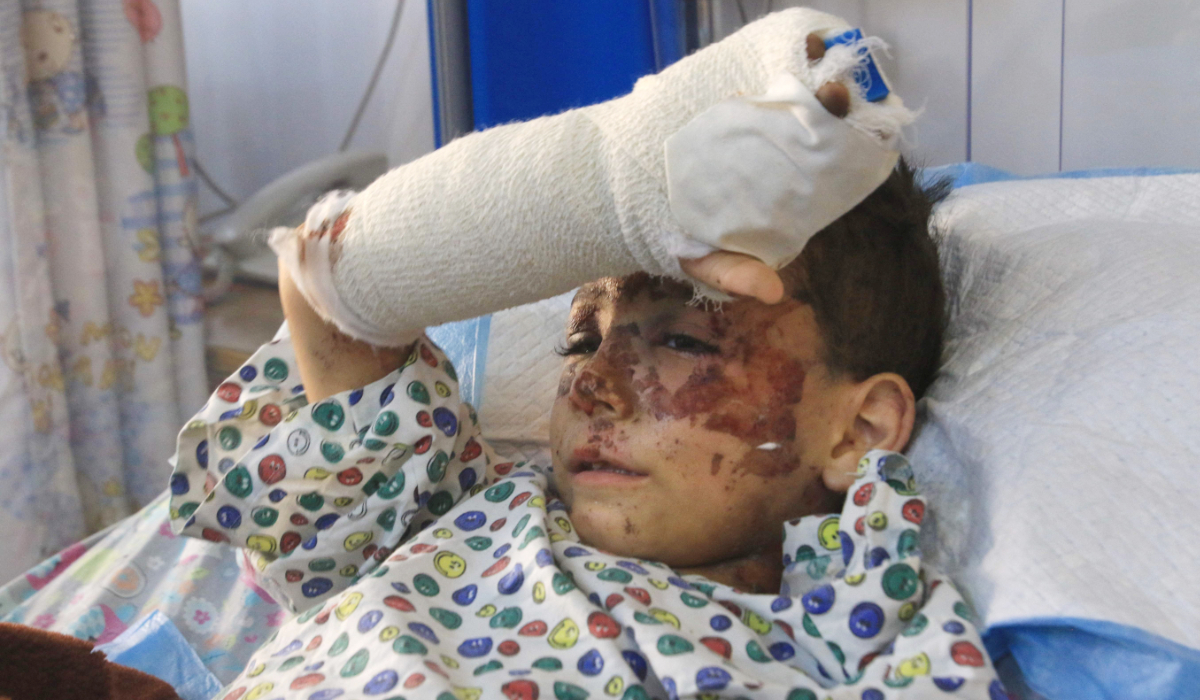
Wounded Lebanese child Haidar Hijazi, 5, rests at hospital in Sidon on September 27, 2024, after he was injured following an Israeli airstrike that targeted his home village of al-Sharkiyah in southern Lebanon. (AFP)
Hezbollah began firing rockets into populated areas of northern Israel in solidarity with Hamas, prompting Israel to retaliate.
In northern Israel, the conflict has forced some 96,000 people to leave their homes. To date, 68 Israeli security personnel and 43 civilians have been killed, according to official tallies.
Israel’s campaign of airstrikes and “limited” ground operations have displaced more than a million Lebanese from their homes, while the death toll has surpassed 3,000, according to health officials.
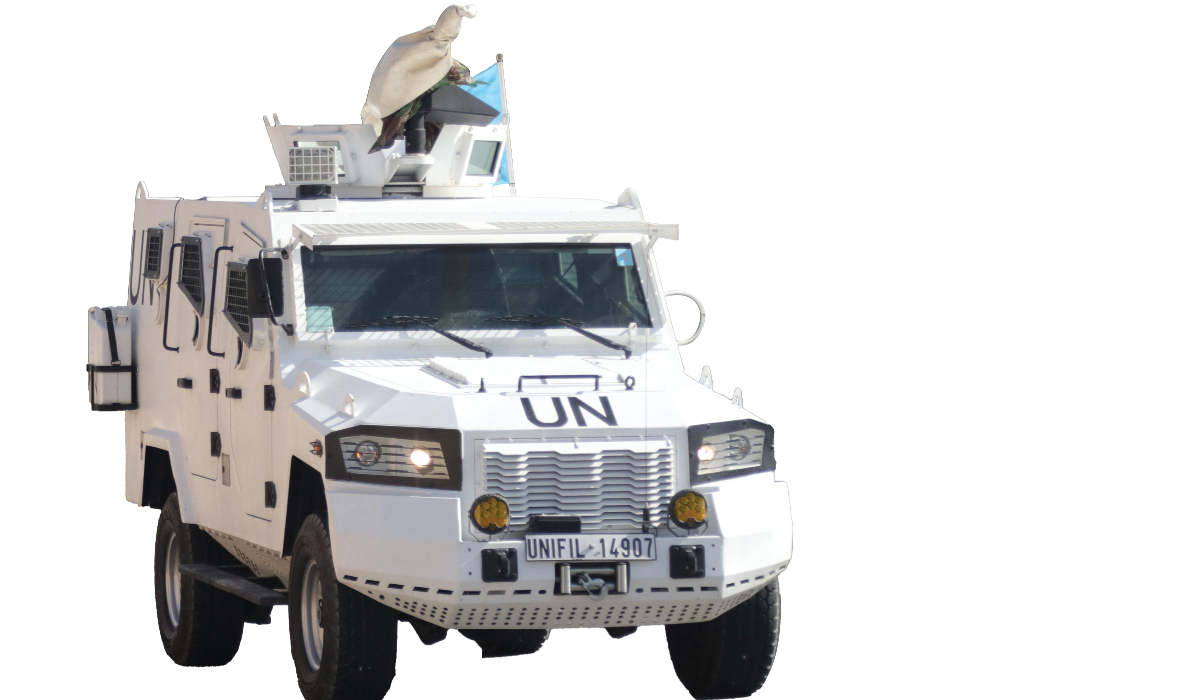
Members of the United Nations Interim Force in Lebanon (UNIFIL) patrol the southern Lebanese Marjayoun district, near the border with Israel, on October 16, 2024. (AFP)
Baydoun shifted from theoretical work to real-time monitoring, using satellite imagery, social media, and data verification to map alleged phosphorus attacks on Lebanese villages.
The Lebanese National Council for Scientific Research estimates that 117 phosphoric bombs have been fired into southern Lebanon, a Hezbollah stronghold, since October 2023. Many of these have reportedly sparked fires, engulfing fields, forests and villages.
Lebanon’s Ministry of Environment has previously said some 462 hectares of forests and farmland were destroyed between October and November 2023. The Ministry of Health has also called on the international community to condemn the use of white phosphorus and to intervene.
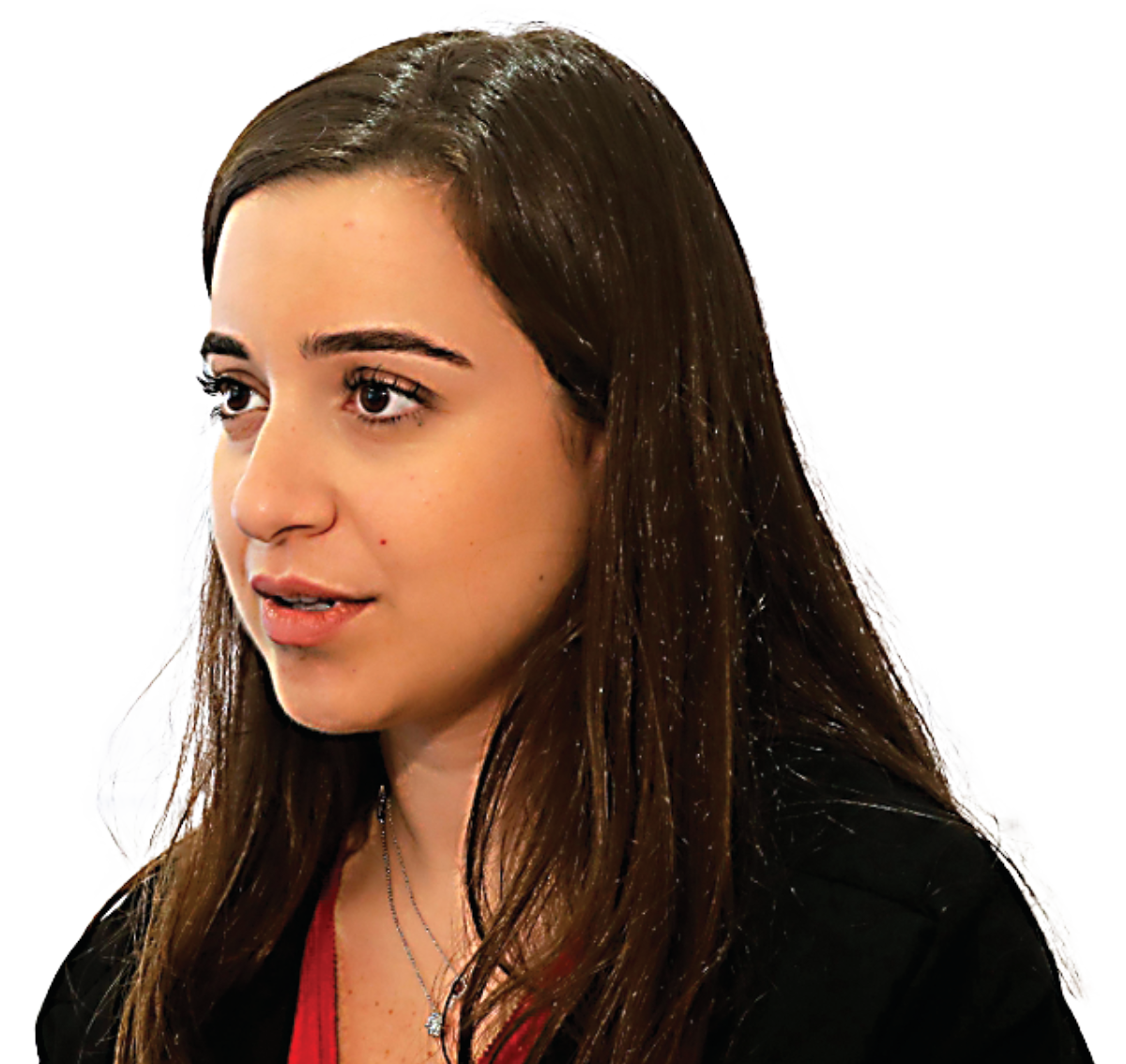
The devastation and destruction of many villages along the Blue Line, and even beyond, is shocking, says Andrea Tenenti, UNIFIL spokesperson
Despite Israel’s insistence that its use of phosphorus serves only as a smokescreen to shield its soldiers’ movements, local Lebanese officials say the weapons are part of a larger strategy to render the area uninhabitable, pushing residents to evacuate en masse.
The use of white phosphorus in populated areas is not just a violation of international law, but a public health threat. When it comes into contact with the skin, it causes extreme, often fatal, burns. It also produces thick fumes that irritate the eyes and respiratory system.
Wounds caused by phosphorus burns can continue to inflict damage days after exposure, requiring extensive medical care — often unavailable in the midst of conflict.

Ahmad Baydoun. (Supplied)
Mental health issues also proliferate among survivors, with conditions such as post-traumatic stress disorder, depression, and insomnia becoming prevalent. The persistent psychological impact, especially for children, is immense and underreported.
The environmental damage is equally far-reaching. When the chemical compound seeps into the soil, it contaminates vegetation and crops, potentially rendering large areas of farmland unusable.
Additionally, chemicals can leach into rivers and water systems, destroying biodiversity and threatening communities reliant on these resources.
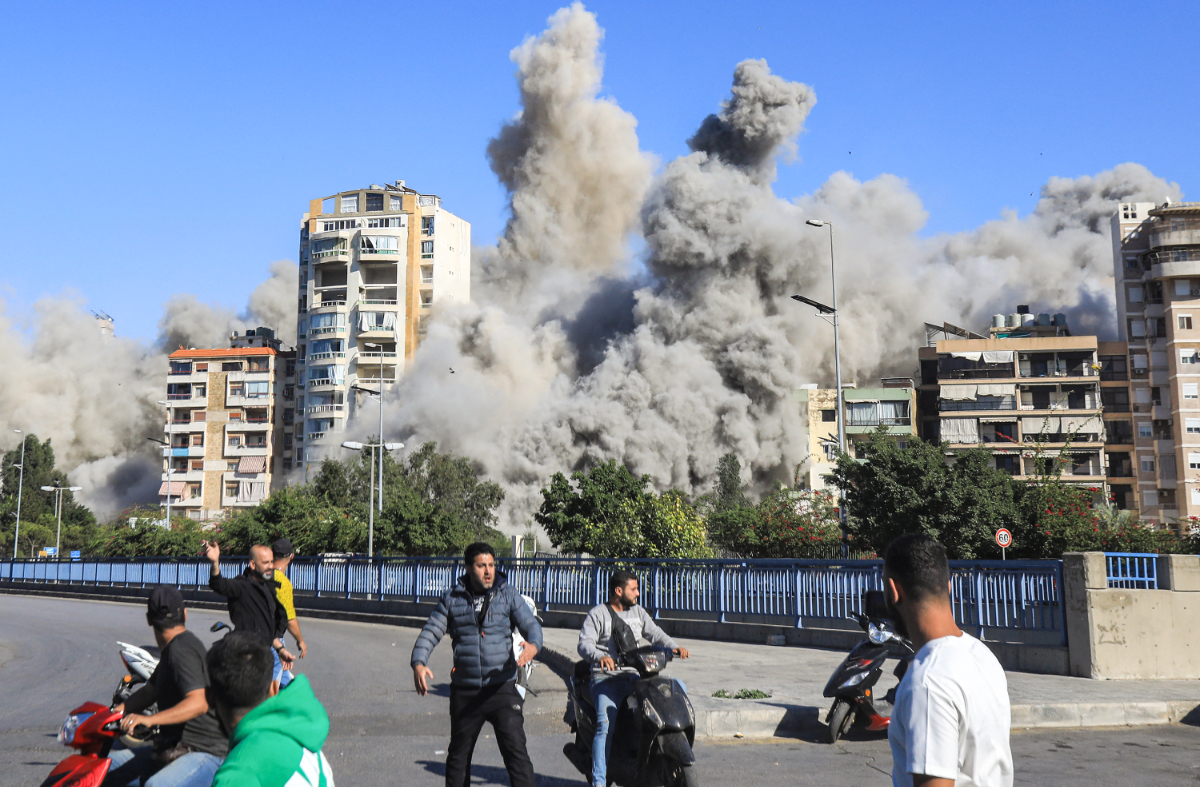
People watch as a smoke cloud erupts after a rocket fired by an Israeli war plane hit a building in Beirut's southern suburb of Shayah on October 22, 2024, amid the ongoing war between Israel and Hezbollah. (AFP)
“We’re not just talking about Lebanon,” said Baydoun. “If these areas aren’t detoxified, we’ll see consequences across the region. Lebanese agricultural exports could carry these toxins, affecting ecosystems and markets beyond our borders.”
Agriculture makes up a significant part of Lebanon’s economy. The contamination of farmland in Lebanon’s south — an area once responsible for much of the country’s crop production — could deal a severe blow to the local economy and food security.
Farmers in southern Lebanon, many already impoverished, face the loss of homes and livelihoods. The destruction of olive groves, citrus orchards and wheat fields reduces local sustenance and regional exports, deepening Lebanon’s economic crisis.
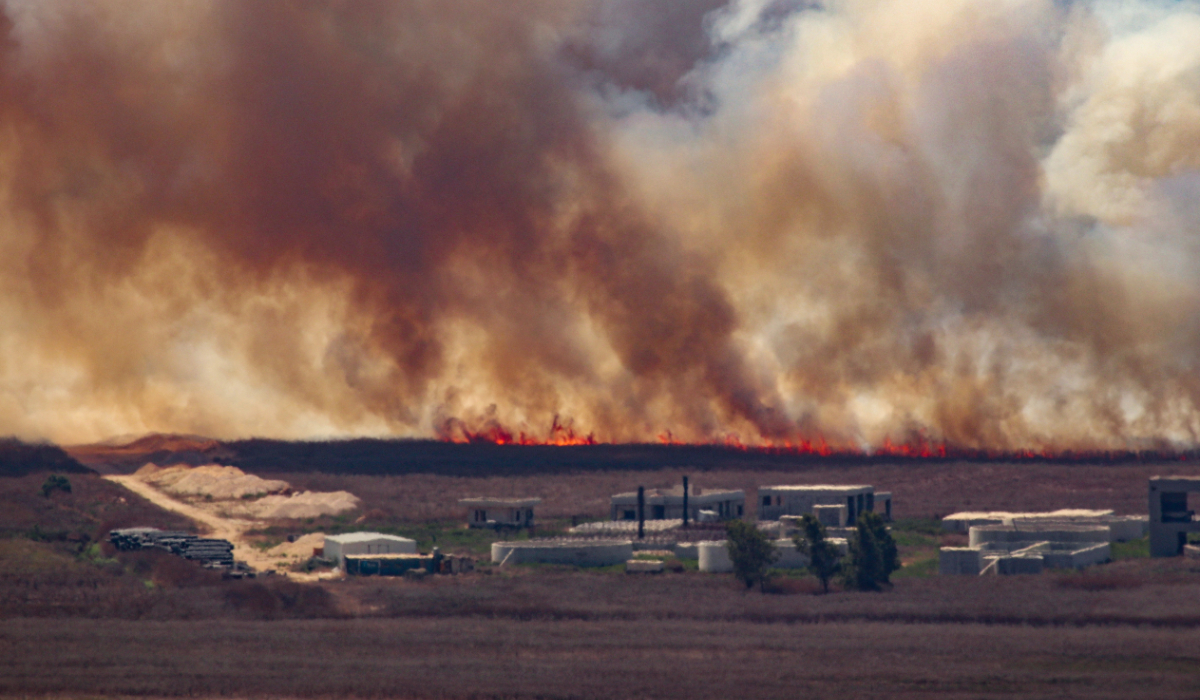
Fire sweep over the Marjayoun plain in southern Lebanon near the border with Israel after being hit by Israeli shelling on August 16, 2024, amid the ongoing cross-border clashes between Israeli troops and Hezbollah fighters. (AFP)
While Baydoun works from Amsterdam, his research methods allow him to follow developments closely.
He employs techniques such as geolocation, where he uses digital imagery and coordinates to pinpoint attacks, and chronolocation, a process of using environmental cues like shadow lengths to estimate times.
These tools help him cross-verify incidents with reliable satellite data, providing accurate, real-time assessments.
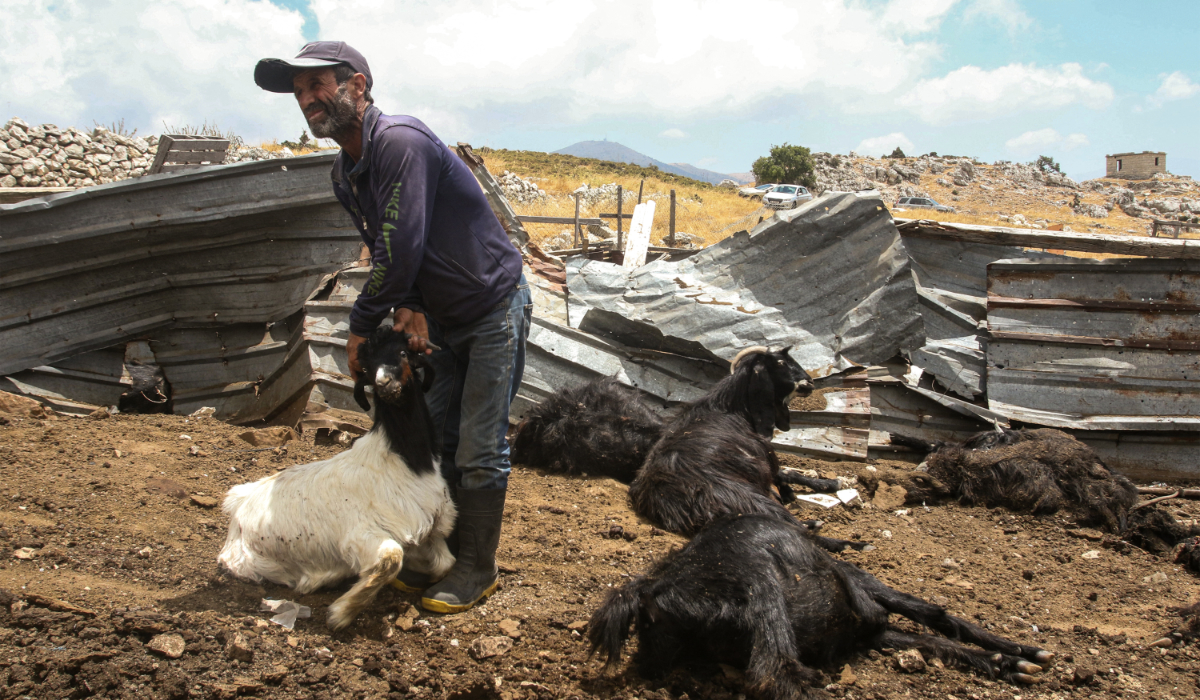
A farmer collects his dead livestock which was killed by Israeli bombardment that hit a farm along the hills of the village of Jezzine in southern Lebanon early on July 8, 2024 amid ongoing cross-border tensions as fighting continues between Israel and Hamas in the Gaza Strip. (AFP)
“Verifying attacks can be complex given how rife misinformation and AI manipulation have become,” said Baydoun. “But every precise verification adds to a larger story — one that’s too compelling to ignore.”
He is not alone in his commitment to these methods. Collaborating with digital investigative platforms, Baydoun joins a global community of researchers dedicated to documenting environmental violence.
Together, they expose patterns of harm that may otherwise remain concealed.
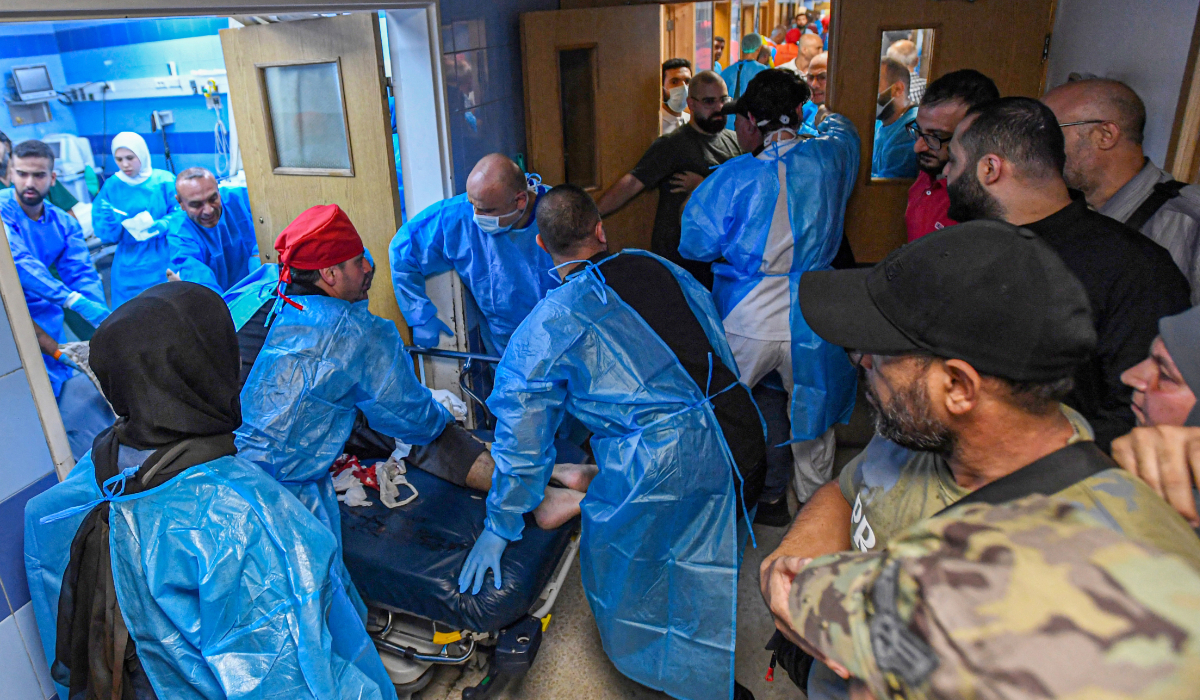
Medical staff care for victims after the Israeli military struck a Beirut's southern suburb, on July 30, 2024, at Bahman hospital. (AFP)
Baydoun also works closely with Lebanese journalist-activists, who help him obtain localized information from remote areas that journalists can no longer access due to safety concerns.
“No one is there to report on what is happening in the south anymore,” said Baydoun. “There is only the UN Interim Force in Lebanon and satellite imagery as sources of information.
“I have previously worked on a map showing how close Israel was bombing near the UN peacekeepers in the area. The peacekeeping forces suffered from gastrointestinal complications, and skin irritations; both are unique effects of exposure to white phosphorus.”
UNIFIL is a UN peacekeeping mission established in 1978 to administer the Blue Line demarking the border between Israel and Lebanon.
Despite spokesperson Andrea Tenenti previously saying that an investigation had found “possible traces of the use of white phosphorus” in close proximity to a UNIFIL base, a confidential report recently published by the Financial Times has been more damning.
The report mentions various incidents where Israeli forces have mounted attacks on or near UNIFIL bases in Lebanon. In one incident, the Israel Defense Forces reportedly used white phosphorus at close range, injuring 15 UN peacekeepers in the process.
The report details the attack of Oct. 13, in which two Israeli tanks breached the main gate of a UNIFIL base and remained inside for 45 minutes. Shortly after, the IDF fired shells approximately 100 meters north of the base, emitting “suspected white phosphorus smoke,” which injured UNIFIL personnel.
“Despite putting on protective masks, 15 peacekeepers suffered effects, including skin irritation and gastrointestinal reactions after the smoke entered the camp,” the report said.
Israel denied directly striking the compound and said the IDF was using the smokescreen for cover as it attempted to evacuate soldiers.
Israel had previously demanded the withdrawal of the UNIFIL peacekeepers from 31 of their bases along the Israeli-Lebanese border, as the areas had become “active combat zones.”
The international community has faced criticism for its muted response to Israel’s use of white phosphorus in Lebanon.
Human rights organizations, including Amnesty International and Human Rights Watch, have condemned the use of white phosphorus in densely populated regions in previous conflicts, but statements from world leaders have yet to directly address the allegations in Lebanon.
For Baydoun, his work on the subject serves as both documentation and advocacy. His research could prove critical, providing an account of Lebanon’s suffering that would otherwise go unseen. But the toll is personal, too.
“I’ve had my share of sleepless nights,” he said. “Emotions run high when attacks happen close to loved ones. You’re working for your country, and it’s hard to stop.”
